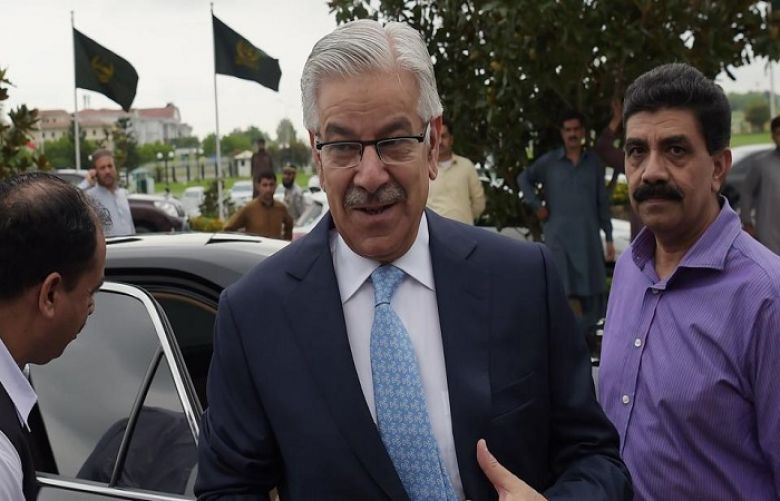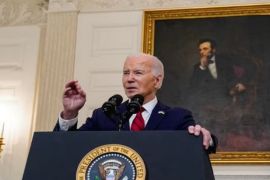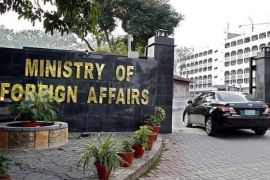The Senate on Monday unanimously passed a motion recommending that the government launch a regional diplomatic initiative to coordinate responses to US President Donald Trump’s new Afghan policy, which takes a dim view of Pakistan’s anti-terrorism efforts.
The document, a copy of which is available suggests three immediate steps that should be taken by Pakistan's Foreign Office. It also says that Pakistan’s viewpoint should not only be conveyed to friendly countries, but also to the allies of the United States.
The US ambassador should be called to the Foreign Office and informed about parliamentary proceedings on the issue, the document further suggests.
The Senate has recommended that the government prepare a fact sheet on American assistance to Pakistan in order to clear the air on how much reimbursements have actually been received under the Coalition Support Fund.
The fact sheet should also take account of US failure to supply military hardware and aid on one pretext or the other and the losses incurred by Pakistan since the US war in Afghanistan, the document states.
The Foreign Office should summon the US ambassador and convey Pakistan's concerns, highlighted in Senate, regarding Trump's new policy.
A fact sheet of Pakistan's contributions in the 'war against terror' should be presented to the US when the foreign minister visits the country.
A fact sheet of the US's assistance to Pakistan should be immediately released, "portraying the post 9/11 scenario as to how much assistance has been provided for the Coalition Support Funds, which are in fact reimbursements to Pakistan."
While discussing steps that need to be taken by Pakistan, the Senate's recommendations suggest that a national policy paper should be created while keeping all stakeholders in mind, "to serve as a [reference] document for US policymakers."
It has also been suggested that a "regional diplomatic initiative" should be launched so that Pakistan's response to the US's Afghan policy can be presented after "consultation with friendly countries." "Pakistan should form a South Asia strategy that should be comprehensive," the document recommends.
The document also wants the security establishment to take note of the United States’ plan to increase the number of its troops in Afghanistan and maintain their presence for an indefinite period.
Regarding Pakistan's policy about Afghanistan, the document suggests that Pakistan should emphasise that no territory should be used against a neighbouring state and call for a focus on border management and security along the border.
The document also stresses the need for a mutually acceptable verification mechanism to look into acrimonious allegations of cross-border violations that emanate from both Kabul and Islamabad.
The document also wants the government to effectively highlight Indian interference in Pakistan and turn the spotlight on militants like Moulvi Fazlullah and others, who are hiding in Afghanistan and operating against Pakistan.
Similar allegations by Afghanistan need to be looked into more closely, the document states.
The document rejects Trump’s remarks as "one-sided" and points out that the US president put the entire blame on Pakistan while ignoring its legitimate concerns.
The entire house, which converted itself into a Whole Committee, devised the recommendations based on policy guidelines proposed by a six-member subcommittee. The Senate chairman said that the house had come up with the recommendations after discussions with the Ministries of Defense and Interior.
The recommendations will now be sent to the National Assembly, which is likely to adopt it on the same lines.
After the recommendations were accepted, the Senate Chairman Raza Rabbani ordered that the recommendations also be forwarded to all Pakistani embassies around the world.
"It has been proven yet again that the Senate comes together proactively when it comes to matters of national security," he observed.







